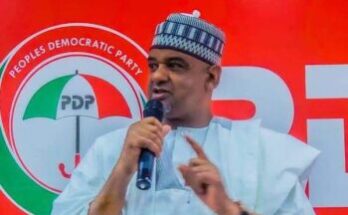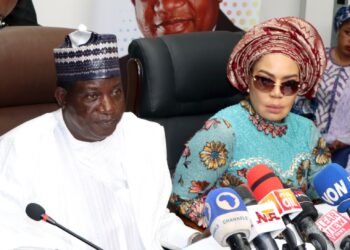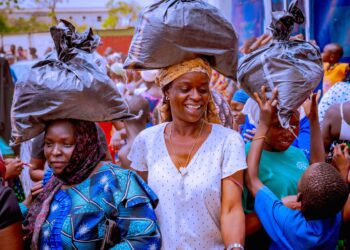The United Nations Deputy Secretary-General, Dr Amina Mohammed, has said that poverty and lack of empowerment of women in Nigeria and other countries in Africa have led to increase in gender-based violence (GBV), especially the marginalisation of women and girls with disabilities, older women, widows and adolescent girls.
Speaking Thursday in Abuja at the 2021 Humanitarian Action Conference, with the theme “chartin new frontiers in humanitarian aid,” Mohammed said that the organisation work with governments to mobilize and align a wide range of financing sources — public and private, domestic and international– to help them empower marginalized people, including women and girls in humanitarian response; in order achieve the SDG and end suffering.
She said: “After an extremely difficult year, we are now working towards a recovery from the COVID-19 pandemic to put countries back on the path towards the Sustainable Development Goals, but we do not have an easy road ahead. Many parts of the world where we work are still dealing with the impact of the pandemic.
“In times of crises, marginalized women and girls bear the consequences the most. Women and girls with disabilities, older women, widows and single-headed households, indigenous women and girls and adolescent girls are further marginalized. Faced with extreme suffering, such as hunger, existing gender inequality increases and risks of gender-based violence are heightened. The pandemic taught us important lessons. Better social protection, universal health care, vaccine equity, effective governance and strong institutions would have saved lives. This calls for six important actions.
“First, we must ensure women’s experiences and priorities remain central to humanitarian action. We must listen to and be guided by affected communities, especially by marginalized women and girls. Second, we must ensure women are engaged in humanitarian decision-making. We must bring women’s organizations and leaders to the table.
“Third, we must fund women’s and local organizations so they can truly empower and support communities in crisis. In many countries, women’s groups are actively engaged in implementing the humanitarian, development and peace nexus, making these efforts more sustainable and equitable in the long term. So, the fourth action is to better connect development and humanitarian work towards achieving the ambition of the SDGs. We are already doing that within the UN.
“As you might know, the framework reflects each country’s priorities and plans in pursuing the SDGs. The fifth action is for countries dealing with increasing numbers of crises and a climate emergency to take ownership of the pathways to the SDGs. So, the sixth call for action is to work with Governments to mobilize and align a wide range of financing sources — public and private, domestic and international – to help those Governments build back better.
“This is our decade of ambitious action to deliver the SDGs. Our collective action to empower marginalized people, including women and girls in humanitarian response and in peace efforts, will go a long way in doing that. Let’s all work together to end suffering.”
Also speaking, the Executive Director of the Innercity Mission for Children, Omoh Alabi, said that faith-based organisations, NGOs, CSOs have a great role to play in the eradication of poverty in Nigeria.
She said: “The Humanitarian Action conference was launched in 2020 and this annual event, which falls in line with the commemoration of the International Day for the Eradication of Poverty, is aimed at mobilizing critical actors in the development space, national and international, government, private, International NGOs, civil society groups, faith-based organizations as well as beneficiaries of the humanitarian programs and intervention to take concrete sustainable actions to end poverty in all its forms.
“Our objectives for this year are, to discuss issues, challenges and lessons learnt on humanitarian aid and poverty eradication especially among women and children, hence the careful selection of speakers of diverse background and rich areas of expertise. This conference would encourage us to eliminate corporate silos as well provide a safe space to foster and promote peer to peer collaboration amongst Humanitarian actors. Ultimately the crux of why we are gathered is to ensure that adequate humanitarian aid gets to those who need the most.
“The Humanitarian Action Conference is an open space to engage, deliberate, bring things into question and at the end of the conference everyone would return loaded with information and decisions that are actionable.”




